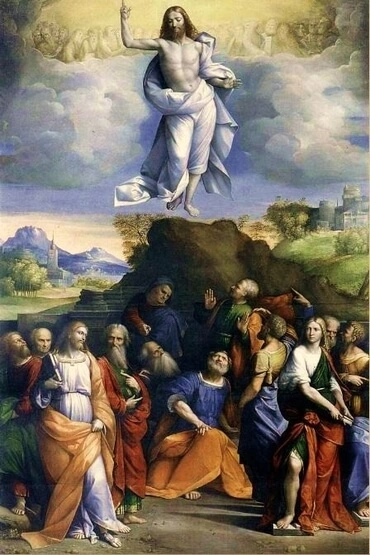Explanation of John 1:14
By Brian David

This is a key moment in this story. The beginning of John 1 explained that the Lord is perfect, infinite love which gave itself expression as divine truth. The duality of love and expression formed a template for humanity, which meant that the Lord’s duality made him the ultimate, divine human. It showed that the divine truth was the power of creation, and that the Lord shared that truth with humanity from the outset, so that people could receive His love and return it. But people kept turning away, and the Lord had to keep expressing his love in more and more external forms to maintain a connection.
By mentioning John the Baptist, the chapter showed that the Jews of the time still had the truth – the Lord’s Word – contained inside the rough-hewn images of the Old Testament. But they were so steeped in evil loves and false thinking that the connection to the Word – to the love within the Old Testament – was about to be snipped forever.
So the Word became flesh. The Lord passed the full expression of His love and His full humanity into physical flesh as Jesus. That way He could once again show the life within the existing Scriptures and could make His own life and His own words part of an expanded expression of truth for a new age of humanity. People could no longer see and feel the Lord’s love through the Old Testament, but they could see and feel it in the face and hands and words of Jesus.
The "glory" here expresses the blinding brilliance of that truth. The "Father" represents the Lord’s actual love itself, and being "begotten" means that the love was expressed in the form of truth. Being full of "truth" has a pretty obvious meaning, but "grace" means an affection, a love for what is true.
The Lord had to come. He had to let His humanity flow down into the flesh, into the most external of forms, because that was the only way we were going to see and embrace it.
(რეკომენდაციები: A Brief Explanation of the Teachings of the New Church 117; The Apocalypse Explained 1069 [3]; The Word 20; True Christian Religion 3, 85)
Survey of Teachings of the New Church # 117
117. The faith of the new heaven and the new church in a specific form is this: Jehovah God is love itself and wisdom itself, or goodness itself and truth itself. As divine truth, or the Word, which was “God with God,” he came down and took on a human manifestation for the purpose of forcing everything in heaven, everything in hell, and everything in the church back into the divine design. The power of the Devil, that is, hell, had become stronger than the power of heaven, and on earth the power of evil had become stronger than the power of goodness; therefore total damnation stood threatening at the door.
[2] By means of his human manifestation, which was divine truth, Jehovah God lifted this pending damnation and redeemed both people and angels. Afterward, in his human manifestation, he united divine truth to divine goodness. In this way he returned to the divine nature that he had had from eternity, together with the human manifestation, which had been glorified. These things are meant by this statement in John: “The Word was with God, and the Word was God. And the Word became flesh” (John 1:1, 14). And in the same Gospel, “I came forth from the Father and have come into the world. Again, I leave the world and go to the Father” (John 16:28). From all this it is clear that if the Lord had not come into the world no one could have been saved.
The situation today is similar. Therefore if the Lord does not come into the world again in the form of divine truth, which is the Word, no one can be saved.
[3] For our part, the specifics of faith are these: 1. There is one God, the divine trinity exists within him, and he is the Lord God the Savior Jesus Christ. 2. Believing in him is a faith that saves. 3. We must abstain from doing things that are evil—they belong to the Devil and come from the Devil. 4. We must do things that are good—they belong to God and come from God. 5. We must do these things as if we ourselves were doing them, but we must believe that they come from the Lord working with us and through us.
The first two points have to do with faith; the second two have to do with goodwill; and the fifth has to do with the partnership between goodwill and faith, the partnership between the Lord and us. (On these points, see also §44 above.)






